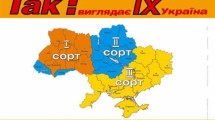Abstract
Terrorism is a notoriously plastic word, depending on user, audience, and political context. This paper focuses on shifts in its meanings since the early 1970s. As federal statutes made terrorism a criminal offense, common usage changed from a broad meaning to one that specified terrorism as a political crime. The argument is that the state shapes meaning and public discourse through law. Peircean semiotics and the semiotic philosophy of Russian linguist Vološinov provide a framework to explore relationships among politics, law, and civil life. Applied to the events of September 11, 2001 such an analysis further allows better understanding of certain interpreters of the September 11 attacks, notably Jean Baudrillard, Jacques Derrida, and Jürgen Habermas.
Similar content being viewed by others
Author information
Authors and Affiliations
Corresponding author
Rights and permissions
About this article
Cite this article
Skoll, G.R. Meanings of terrorism. Int J Semiot Law 20, 107–127 (2007). https://doi.org/10.1007/s11196-006-9038-5
Published:
Issue Date:
DOI: https://doi.org/10.1007/s11196-006-9038-5



